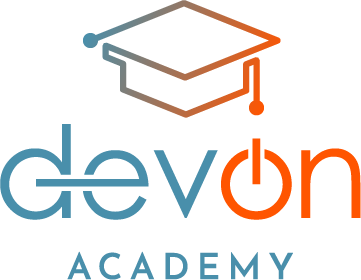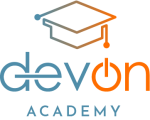Zero Trust Security Architecture
Zero Trust Security Architecture is a security model that assumes that any device, user, or application attempting to access an organization’s resources should not be automatically trusted. Instead, it should be verified and authenticated before granting access to any resource.
The course consists of several components, including Identity and Access Management (IAM), Network Security, Data Security, and Monitoring. IAM includes Authentication and Authorization techniques with advanced features.
| 15+ Years Experience Learn from industry leaders |
Tailor-made Learning Journeys Become the expert you want to be! |
| Hands-On Approach Immediately start applying your craft |
Rated 8,4 Highly reviewed by your peers |
 Upcoming courses
Upcoming courses

- DevSecOps Engineer
- Dutch
- English
Short summary
Zero Trust Security Architecture is a security model that assumes that any device, user, or application attempting to access an organization’s resources should not be automatically trusted. Instead, it should be verified and authenticated before granting access to any resource.
The course consists of several components, including Identity and Access Management (IAM), Network Security, Data Security, and Monitoring. IAM includes Authentication and Authorization techniques with advanced features. Network Security includes Software-defined Perimeter, Micro-segmentation, and Network Access Control. Data Security includes Data Classification, Encryption, and Access Control with advanced features. Monitoring includes Threat Detection and Response.
Threat modeling for Zero Trust involves identifying Attack Vectors, Threat Actions, and Mitigation Strategies. A hands-on lab is provided to configure Zero Trust Network Security Controls with advanced features such as Application Whitelisting, Anomaly Detection, and Behavioral Analytics. Another lab is provided to implement a Zero Trust IAM Solution with advanced features such as Continuous Authentication, Attribute-based Access Control, and Privileged Access Management.
The course ends with implementing Zero Trust Security in complex environments. We discover best practices and case studies to ensure success.
Our Trainer

Kevin Boots
DevOps Consultant
Kevin is an energetic tech- & teamlead all about making two things happen: Make it work, and make it work better with a smile.
His specialty lies in automation, scripting, collaboration tooling, leadership, and process improvement, with a specific passion for anything DevOps & CI/CD. Other than that, he aims at enabling teams to go from 0 to 120 using every tool at their disposal.

Course objectives
The course aims to provide learners with a comprehensive understanding of Zero Trust Security Architecture, its concepts, principles, and models. It also intends to educate learners on the various components of Zero Trust Security, including Identity and Access Management, Network Security, Data Security, and Monitoring, and how they work together to ensure a secure IT environment.
The course’s objectives are to teach learners how to design and implement a Zero Trust Security Architecture that meets their organization’s unique needs. It also aims to equip learners with the skills necessary to identify Attack Vectors, Threat Actions, and Mitigation Strategies and implement Zero Trust Network Security Controls with advanced features such as Application Whitelisting, Anomaly Detection, and Behavioral Analytics.
In addition, the course’s objectives are to teach learners how to implement Zero Trust IAM Solutions with advanced features such as Continuous Authentication, Attribute-based Access Control, and Privileged Access Management. Finally, the course provides best practices and case studies for implementing Zero Trust Security in complex environments to ensure the success of the implementation.

Course topics
Module 1: Introduction to Zero Trust Security Architecture
- Concepts
- Principles
- Models
Module 2: Zero trust security components
- IAM
- Network security
- Data Security
- Monitoring
Module 3: Threat Modelling for Zero Trust
- Attack Vectors
- Threat Actions
- Mitigation Strategies
Module 4: Zero Trust Network Security
- Software-defined Perimeter
- Micro-segmentation
- Network Access Control
Hands-on Lab: Configuring Zero Trust Network Security Controls with Advanced Features such as Application Whitelisting, Anomaly Detection, and Behavioural Analytics
Module 5: Zero Trust IAM
- Authentication and Authorization Techniques with Advanced Features
Module 6: Zero trust data security
- Data Classification
- Encryption
- Access Control with Advanced Features
Module 7: Zero Trust Monitoring – Threat Detection & Response
Module 8: Implementing Zero Trust Security in Complex Environments – Best Practices & Case Studies
Hands-on Lab: Implementing a Zero Trust IAM Solution with advanced features such as Continuous Authentication, Attribute-based Access Control, and Privileged Access Management
Module 9: Q&A and conclusions
- Key takeaways
- Remaining questions
- Explanation online ‘open book’ exam & certificate
- Initial feedback
Testimonials
-
Lots of engagement with the trainer and gained valuable insights about DevOps
DevOps Foundation
-
Applicability, speed, material knowledge
 DevOps Foundation
DevOps Foundation
-
Discussions were amazing
 DevOps Foundation
DevOps Foundation
-
Interactive and focused
 DevOps Foundation
DevOps Foundation
-
Practical examples
 DevOps Foundation
DevOps Foundation
-
Interactive & Foccuses
 DevOps Foundation
DevOps Foundation
-
Knowledgeable trainer who's able to clarify difficult topics
DevOps Foundation
-
10/10
 DevOps Foundation
DevOps Foundation
-
Informative training
 DevOps Foundation
DevOps Foundation
Training dates
Payment methods
![]()
![]()
![]()
![]()
Need help?
Please contact us via email or call us by the number stated below. We are more than happy to help you.
+31 (0)15 - 241 19 00
academy@devon.nl
What’s next for me?
Take a look at what trainings you should follow next to become a true expert in your field.
FAQ
After your registration has been confirmed, you are still able to change the date up to 20 days before the first day of the training. You are able to do this once. Please send your request to academy@devon.nl or call +31(0)15-24 11 900 for further assistance.
Two weeks before each training, we will check if we have enough participants for the training course to be valuable and continue. If this is not the case, we will inform you by e-mail, with options for a new date and location. After this notification, you will have the right to cancel or change your registration within 5 working days.
On the website you can choose to pay via iDeal, creditcard or by invoice with a payment period of 30 days.
Most of our courses are available in both English and Dutch. We have a selection of training courses which are only available in English, which will be on that training page. Our rule of thumb for courses in the Netherlands is – the course is in English unless everybody speaks Dutch, then the course is in Dutch. If you want to be sure you are in a Dutch course, please get in touch with academy@devon.nl in case the information on a specific date is not available on the course page.
Unless mentioned otherwise, the course fee includes the cost of training material, exam cost, the use of the location, catering and parking.
When you click on the orange arrow, the menu will unfold further. More locations and dates might appear.
The costs that apply to our programs initiated from the Netherlands are exempt from sales tax as per Article 11-1-o of the 1968 Sales Tax Act. In other locations/countries, the prices shown are excluding VAT, which will be added.
Is the ‘register’ headline visible? This means you can register and attend the training. Does the headline say ‘full’? Give us a call and we’ll try and help you out!
All course material for the open registrations is in English.
If you are doing the PSD (Scrum.org) or one of the certified DevOps Institute trainings, you will receive your exam code on the final day of the training.
We have a payment term of up to 30 days




